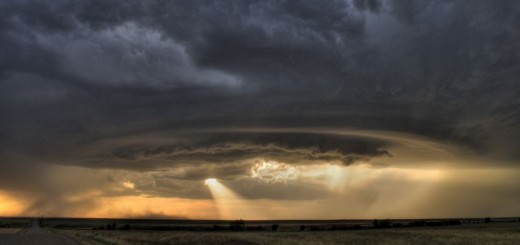Jonah: misunderstood and under-rated
Jonah, he lived in a whale
Jonah, he lived in a whale
He made his home in that fish’s abdomen
Jonah, he lived in a whale From ‘It ain’t necessarily so’
Apologies. Had to share. Couldn’t let that class rhyme pass us by.
And that’s where we are. In that fish’s abdomen. In the belly of the whale. Maybe you’re in your own particular version of that lonely, unpleasant, dark, desperate place right now.
Maybe you feel you deserve it. Maybe from what you remember of Jonah, you feel he deserved it.
But the more I think about Jonah, the more I’m coming to see that this man is misunderstood and under-rated.
I’ve always thought of Jonah as a wrong’un. A coward. Disobedient and weak. Running away from God, almost killing all those sailors alongside him in the storm, wallowing in his despair inside the whale…
But actually, Jonah is a bit of a hero. A flawed hero, yes, but that’s just like all the best heroes. There’s a lot of courage in this tale. It just depends how you tell it.
So here are eight reasons why we may have got Jonah all wrong:-
- Jonah was a prophet
Jonah was a good man. A prophet of the one true God. That took courage in itself. Speaking out God’s challenging message at a time when no one wanted to hear it. Reminding God’s people of their promises to Him and their duty of obedience to Him. Prophets stood out. Prophets spoke out. That’s not the role of a disobedient and weak man.
2. God chose Him
God had a really difficult task to be done. He wanted to reach out in love and mercy to the arch enemies of His people, the Assyrians. He needed the right man for the job. God never gets it wrong, never randomly chooses the wrong person. He had His reasons for choosing Jonah. God knew that Jonah was up to the huge task He was asking of Him.
3. Jonah ran
But Jonah felt inadequate. He was scared. He doubted his own ability to do what God was asking of him. And yes, that was his flaw. But can we really blame him? Have you never felt called to something that feels beyond you? And actually, running away takes courage. Leaving the familiar, leaving all that you have behind you isn’t easy. It’s easier to just ignore that inner voice, that intuition, that voice of God. It’s easier just to carry on and pretend you never heard it. I’ve done that. I’m sure you’ve done it too. That’s the cowardly thing to do. However, Jonah acknowledged that God was calling him to step up and acknowledged that for him, just carrying on as if nothing had happened was not an option. He couldn’t just ignore God. He had to act. He had to physically act out his response to God’s request.
4. Jonah slept during the storm
Jonah felt safe enough to sleep during the storm. He never questioned the power of the God of the whole universe, you see. He had faith that whatever happened, God was in it. God could save. God would save if it was His will to do so. God had ultimate power over the wind and the waves. Jesus sleeps in a boat during a storm too. It shows ultimate confidence in the Creator to do that.
5. Jonah never questioned that God is God
This follows on. Jonah didn’t question what’s happening. It was all pretty clear in his head. God is God, there is no question of that. He didn’t question the reality of God or His love or power. All of that is a given. There’s no doubting, no fighting against it. It just is. God is.
6. Jonah gave himself up to save others
Jonah knew exactly what needed to be done to save all these people and he didn’t try to wriggle out of it. He took the blame for the situation. He offered a solution. He offered himself. There was no other way. He gave up his life for these men that he didn’t even know. He was thrown overboard to his certain death. In some ways, that sounds a lot like Jesus, doesn’t it?
7. Jesus was OK with using him as an example
Jesus saw the similarities too.
Then some of the Pharisees and teachers of the law said to him, ‘Teacher, we want to see a sign from you.’
He answered, ‘A wicked and adulterous generation asks for a sign! But none will be given it except the sign of the prophet Jonah. For as Jonah was three days and three nights in the belly of a huge fish, so the Son of Man will be three days and three nights in the heart of the earth. The men of Nineveh will stand up at the judgement with this generation and condemn it; for they repented at the preaching of Jonah, and now something greater than Jonah is here. Matthew 12: 38-41
And he was OK with that. He didn’t focus on Jonah’s disobedience and cowardice as we so often do. He focused on the price Jonah paid and the effectiveness of Jonah’s preaching.
8. Jonah prayed
And finally, Jonah prayed. After all that had gone before – the disobedience and God’s reaction – the lines of communication were still open. The relationship between Jonah and his God was still strong. Praying was still the most natural reaction in the world. Nothing Jonah would ever do could separate him from the love of God. He knew that. He was sure of that.
Jonah has a massive amount to teach us about being in relationship with God which goes way beyond living in a whale.
It’s all so easy to get someone wrong. To hear a simplified version of their story and draw our own conclusions. We can be quick to judge, quick to condemn. Quick to proclaim that ‘he’s got what’s coming to him’ or ‘she got exactly what she deserved’.
It’s possible we’ve simplified the story about ourselves too. That we’ve written ourselves off and hopeless and helpless and unlovable and unredeemable.
Maybe we’re listening to the wrong story. Maybe there’s a story in there of reaching out to God, reaching out to others, being honest about our inadequacies, a deep (maybe well-hidden) trust in the universe.
If we’ve got it wrong about Jonah, maybe we’ve got it wrong about each other too.
No one is hopeless and helpless and unlovable and unredeemable.
No one.












